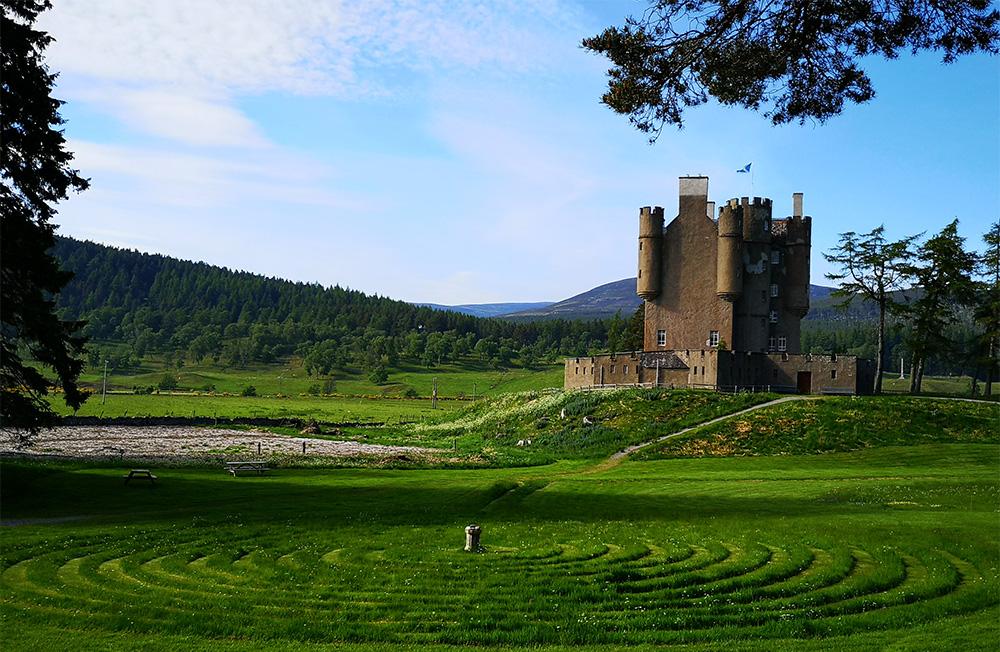History
Braemar’s origins are rooted in antiquity. The area has been strategically important since very early times.
Hill passes, from the north, south, east and west converge where the modern village now stands. The earliest settlement is believed to have been near the raised mound where Braemar Castle is now situated. The first church dedicated to St Andrew in Scotland was built here and the area came to be known as St Andrews.
Fine hunting first brought royal patronage, and in the 10th century, King Kenneth Macalpin enjoyed sport here. The rocky hill which forms the backdrop to the village bears his name. Kenneth’s Crag, Creag Choinnnich.
In the 11th century, King Malcolm Canmore built a fine hunting lodge on the banks of the Clunie and is credited with being the first to use a competitive hill race to find his best soldiers, a tradition which lives on in the annual Braemar Gathering.

Kindrochit Castle is known to have been in regular use by Scottish kings until the 16th century. Around the castle, grew up the village of Castleton on Invercauld Estate which along with Auchendryne (field of the thorns) on Mar Estate forms the modern Braemar.
By the 17th century, Kindrochit was ruinous and a new Castle of Marr was built by the Earl of Mar, near the site of the original St Andrews. In 1715, the Earl of Mar gave the village a lasting place in the history of Scotland when he raised the standard to start the 1715 Jacobite uprising.

Up until the 19th century, Gaelic was the language spoken by the inhabitants of Braemar, evidenced by local place names. The arrival of Queen Victoria on Deeside in 1848 brought an influx of English visitors and created the new industry of tourism for the village. The Gaelic language was laid aside and Braemar embraced the new opportunities. Hotels and businesses, designed to serve the new wave of visitors sprang up and the village, as we know it today, began.
A download for a Braemar village history walk with geocache waypoints is available here.